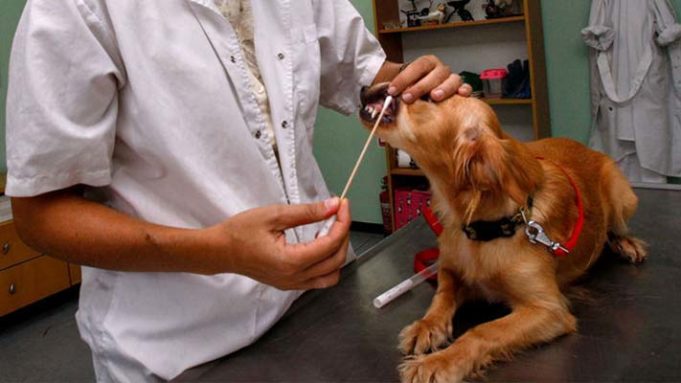Genetic testing has become a valuable tool in the health industry for humans but it's still in its infancy stages for testing dogs.
There is an overwhelming number of pet owners who want to get their dog genetically tested using DNA dog tests to find out more about the breed. In recent years, the genealogical industry has boomed with startups and companies that provide the service specifically for testing dogs and cats after the success of human DNA testing.
“I worry that if the tests don’t improve, people are going to notice that their dogs don’t actually get the diseases they’re at risk for.”
But what benefit do these tests provide and are they really accurate and necessary? How much can pet DNA testing tell about your furry companions that will make a significant impact in their life?
The process for testing dogs for their DNA isn't as sophisticated as studying and analyzing human DNA. And if the animal has many mixes of breeds, then it's likely harder to generate a more accurate result.
RELATED PODCAST: What Are Dog DNA Tests and Are They Reliable?
Dog DNA Testing for Fun or for Health?
Most dog owners want to get their dog tested for DNA in order to find out interesting and sometimes useful facts and information about the dog's breed and its health aspects, according to veterinary experts Lisa Moses and Elinor Karlsson via Science Magazine.

There's been a number of cases where genetic testing of dogs appeared to be very useful and provide vital and/or interesting information. We've seen results of dog DNA studies where scientists discovered the reason for blue eyes in Huskies, more curious things like how dogs carry cancer genes from over 10,000 years ago and much more.
But lately, scientists have noticed that there's a growing number of owners who have become eager to treat their dogs just because their DNA tests revealed they might be predisposed to develop heart diseases and other serious disorders.
Moses and Karlsson published a think piece in the scientific journal Nature, that explored the real potentials of dog DNA tests. They've taken an evidence-based approach to analyze the use and applications of genetic testing in dogs, potential for the future, and they also cited their limitations in the current process.
RELATED PODCAST: How Dog DNA Tests Impact Veterinary Research
Little Scientific Accuracy
Karlsson emphasized that dog DNA tests don't have accurate scientific information about the potential diseases the dog may develop in old age, unlike human DNA tests. Thus, it should not be used as a tool for making life-changing or life-and-death decisions about the pup's health.
Speaking with the Washington Post, Moses said that these tests are a cause for concern because it can bring about misinformation. And since dog DNA testing is still in its infancy, it's still largely unregulated.
Most canine DNA testing companies like Wisdom Panel charge $65 or more for their dog DNA testing kits, depending on what the pet owners would like to know about their dog. Among other things, they get a list of potential diseases that the dog’s DNA will reveal from the tests. But since there is no actual scientific basis for these tests, the results are actually meaningless and should never be considered as a factor in deciding what to do with the dog's health.
In most cases, the dog might not even develop the disease that there are supposed to have higher risks for. The experts say there’s also a danger in this because people might discount the value of genetic testing entirely.
RELATED PODCAST: How Effective and Beneficial Are Dog DNA Tests?
More Involvement in the Veterinary Community
 Moses said that there needs to be a conversation within the veterinary community, the scientists and the companies that make these tests so that the reports and results are validated. The tests and the science behind the tests have to be transparent and standardized.
Moses said that there needs to be a conversation within the veterinary community, the scientists and the companies that make these tests so that the reports and results are validated. The tests and the science behind the tests have to be transparent and standardized.
At the moment, none of these are in place. Observers also noted that marketing and money-making have preceded the industry over educating the owners about the test results.
But a spokesperson from Embark, which is one of the leading companies that provide the dog DNA tests (and with whom we spoke several times on our podcast), said in the same Washington Post report that it provides proactive genetic counseling to pet owners when they get the results. Not all companies have the same counseling service though.
Moses also asks pet owners to get involved and demand that there should be regulation and standards for these dog DNA tests. This way, pet owners are truly going to benefit from what they have paid for.
READ NEXT: The Vet’s Guide on DNA Tests for Dogs













